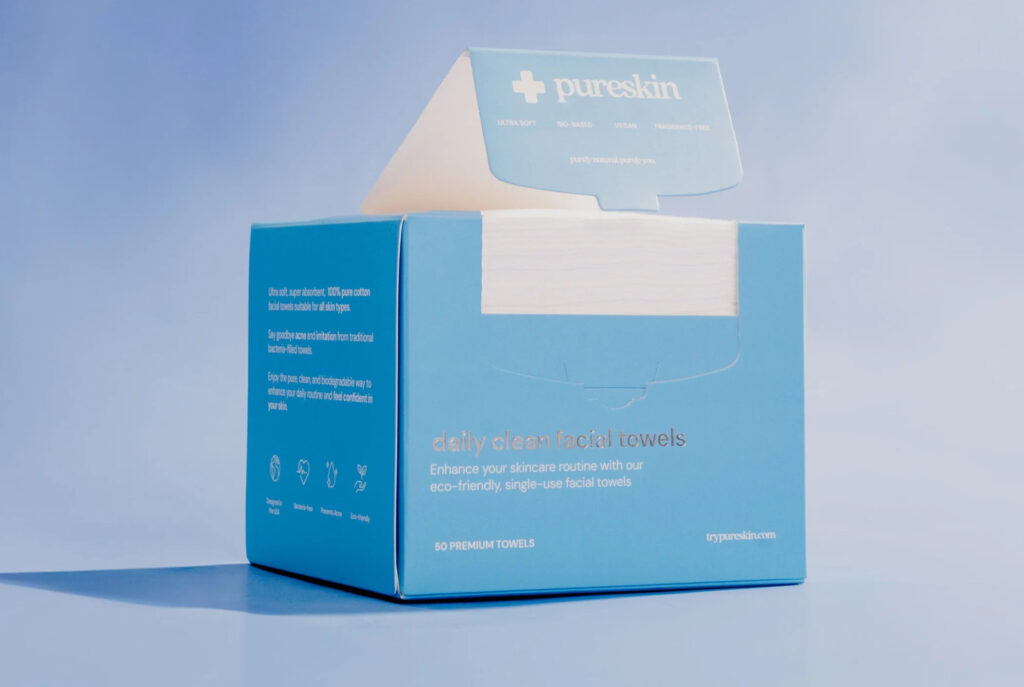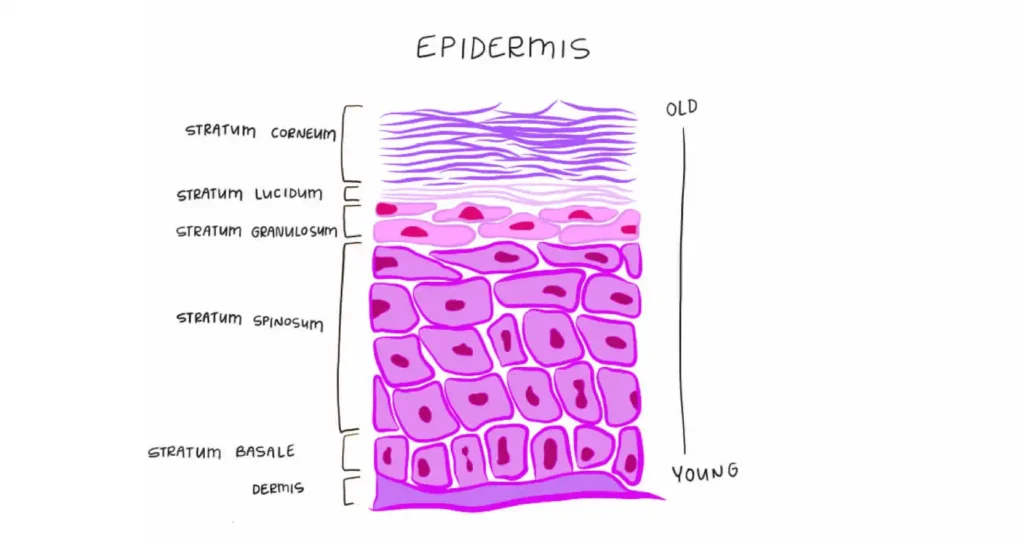Your skin barrier is like the bouncer at Club Dermis—its job is to keep the bad guys (pollution, bacteria, irritants) out while letting the VIPs (moisture, natural oils, and nutrients) stay inside where they belong. But just like an overworked bouncer, your skin barrier can get exhausted, overwhelmed, and ineffective if you don’t take care of it.
Scientifically speaking, your skin barrier is the stratum corneum, the outermost layer of your epidermis. Think of it as a brick wall—your skin cells (corneocytes) are the bricks, and the lipids (natural fats) in between act as the mortar that keeps everything sealed. This wall-like structure is crucial because it serves as your first line of defense against external aggressors like pollution, UV rays, and bacteria while locking in hydration to keep your skin plump and healthy.
Why Is Your Skin Barrier So Important?
When your skin barrier is healthy, it functions like a well-built fortress—strong, resilient, and unbreakable. This means:
- Your skin holds onto moisture better, preventing dehydration and flakiness.
- You’re less prone to irritation, breakouts, and redness since irritants can’t easily penetrate your skin.
- Your skin stays looking youthful longer because a strong barrier reduces collagen breakdown and premature wrinkles.
But when this protective barrier weakens or breaks down? Uh-oh. Suddenly, moisture escapes (hello, Sahara Desert skin!), and harmful irritants invade, leading to dryness, sensitivity, inflammation, and even breakouts.
Science Backs This Up
A study published in The Journal of Investigative Dermatology found that a compromised skin barrier is one of the leading causes of chronic skin conditions like eczema and dermatitis.
Dr. Whitney Bowe, a board-certified dermatologist, puts it simply:
“If your skin barrier is damaged, your skin becomes more susceptible to irritation, infections, and accelerated aging. Keeping it strong is the foundation of a good skincare routine.”
How Do You Know If Your Skin Barrier Is Happy?
A strong, healthy skin barrier = soft, hydrated, and balanced skin.
A damaged skin barrier = dry, tight, inflamed, or breakout-prone skin.
Not sure which camp you fall into? Ask yourself these questions:
- Does your skin sting, itch, or feel tight after cleansing?
- Do products that never used to bother you suddenly cause redness or irritation?
- Are you experiencing random breakouts, rough texture, or dullness despite using the same routine?
If you answered yes to any of these, your skin barrier might be in trouble. But don’t worry—we’ve got solutions (and most importantly, preventative measures) coming up soon.
What Disrupts Your Skin Barrier?
While some factors are beyond our control (thanks a lot, genetics and aging), many skin barrier breaches are self-inflicted. Here are the top culprits:
1. Over-Exfoliation
Going gung-ho with scrubs and peels can strip away essential lipids, leaving your skin defenseless. As dermatologist Dr. Karan Lal points out, “Over-exfoliating can lead to a compromised skin barrier, resulting in dryness and irritation.”
2. Harsh Cleansers
Using strong, stripping cleansers can disrupt your skin’s natural pH and moisture balance. Gentle, non-foaming cleansers are your skin’s best friend. Dermatologists recommend choosing cleansers that effectively remove impurities without compromising the skin barrier.
3. Skipping Moisturizer
Neglecting to hydrate is like forgetting to water your plants—they’ll wither, and so will your skin. Regular moisturizing helps maintain the skin’s barrier function and prevents water loss. Opt for non-comedogenic moisturizers to keep your pores clear and your skin happy.
4. Sun Exposure
UV rays are notorious for breaking down the skin’s barrier, leading to premature aging and increased sensitivity. Daily sunscreen is a must to shield your skin from these harmful effects. Dermatologists emphasize the importance of broad-spectrum sunscreens with an SPF of 30 or higher.
5. Extreme Weather
Both scorching heat and biting cold can sap moisture from your skin, weakening its defenses. Protecting your skin against harsh weather conditions is essential for maintaining barrier integrity. Adjusting your skincare routine seasonally can help combat these environmental stressors.
How Long Does It Take to Repair a Damaged Barrier?
A damaged skin barrier won’t heal overnight, but with the right care, it can recover. The timeline depends on how much damage has been done and how well you support your skin—both externally and internally.
Mild irritation may clear up in a few days, while more severe barrier damage can take weeks or even months to fully heal. The key is patience and prevention, not just damage control.
Mild Damage: 3 to 7 Days
If your skin feels slightly dry, tight, or a little sensitive after over-exfoliating or using a harsh product, it’s a sign of mild barrier stress. Recovery can take about a week if you stop irritants and focus on hydration.
Moderate Damage: 2 to 4 Weeks
When your skin becomes easily irritated, more reactive to products, or prone to redness and rough texture, the barrier is more significantly weakened. This can happen from prolonged sun exposure, overuse of strong skincare ingredients, or repeated exposure to pollution.
Severe Damage: 1 to 3 Months
If your skin is constantly inflamed, peeling, stinging, or prone to flare-ups of eczema or rosacea, the barrier is severely compromised. Chronic overuse of exfoliants, extreme weather exposure, or nutrient deficiencies can slow healing. This level of damage requires deeper care and lifestyle changes.
How to Speed Up Skin Barrier Recovery
Healing your skin requires internal and external support. Your skincare routine is only part of the equation—what you eat, how you handle stress, and even how you dry your face can impact how fast your barrier recovers.
1. Simplify Your Skincare Routine
Overloading your skin with too many products can make things worse. Stick to the basics:
- Use a gentle, non-foaming cleanser that won’t strip natural oils.
- Skip exfoliants like AHAs, BHAs, retinoids, and strong vitamin C until your skin feels fully balanced.
- Apply a simple, non-comedogenic moisturizer immediately after cleansing to lock in hydration.
2. Be Extra Gentle When Drying Your Face
Rough towels and rubbing can create micro-tears in your already weakened skin barrier.
- Switch to pureskin™ towels—single-use, ultra-soft, and bacteria-free, preventing unnecessary irritation.
- Pat your skin dry instead of rubbing to avoid friction and stress.

pureskin™ daily clean facial towels
Ultra-soft, 100% cotton towels made for clean, healthy skin. Ditch dirty towels that trap bacteria—get a fresh, gentle dry every time. Perfect for all skin types.
3. Prioritize Sun Protection
UV exposure weakens the skin barrier, slows down healing, and increases inflammation. Even if you’re indoors, your skin is exposed to damaging UVA rays.
- Apply a broad-spectrum SPF 30+ every morning and reapply if you’re outside for long periods.
- Wear a hat or seek shade when possible to limit direct sun exposure.
4. Focus on Hydration—Inside and Out
Your skin needs both topical and internal hydration to repair itself.
- Drink plenty of water throughout the day to support skin cell function.
- Use a moisturizer multiple times a day if your skin still feels dry.
- Avoid long, hot showers that strip moisture from the skin.
5. Eat for Skin Barrier Repair
Your diet directly affects your skin’s ability to heal. A nutrient-rich diet supports a healthy barrier from the inside out.
- Increase omega-3 fatty acids from sources like salmon, flaxseeds, and walnuts to reduce inflammation.
- Eat foods rich in antioxidants, like berries, spinach, and green tea, to fight oxidative stress.
- Avoid processed sugar, excessive caffeine, and dairy, which can trigger inflammation.
6. Support Your Gut Health
A strong gut microbiome means less inflammation and better skin barrier function.
- Add probiotics and fiber to your diet through yogurt, kimchi, sauerkraut, and whole grains.
- Avoid antibiotics and processed foods that disrupt gut bacteria balance.
7. Get Enough Sleep and Manage Stress
Chronic stress and poor sleep increase cortisol levels, which weakens the skin barrier over time.
- Aim for 7-9 hours of sleep per night to support skin cell regeneration.
- Reduce stress with activities like meditation, exercise, or journaling.
Final Thoughts: Prevention is Easier Than Repair
A strong skin barrier isn’t just about what you put on your face—it’s about how you take care of your body overall. Using pureskin™ towels, simplifying your skincare routine, staying hydrated, and eating nutrient-rich foods all contribute to a healthy, resilient skin barrier.
Instead of constantly repairing damage, focus on preventing it by treating your skin gently, protecting it from the sun, and maintaining a balanced diet. Your skin works hard to protect you—give it the care it deserves.



